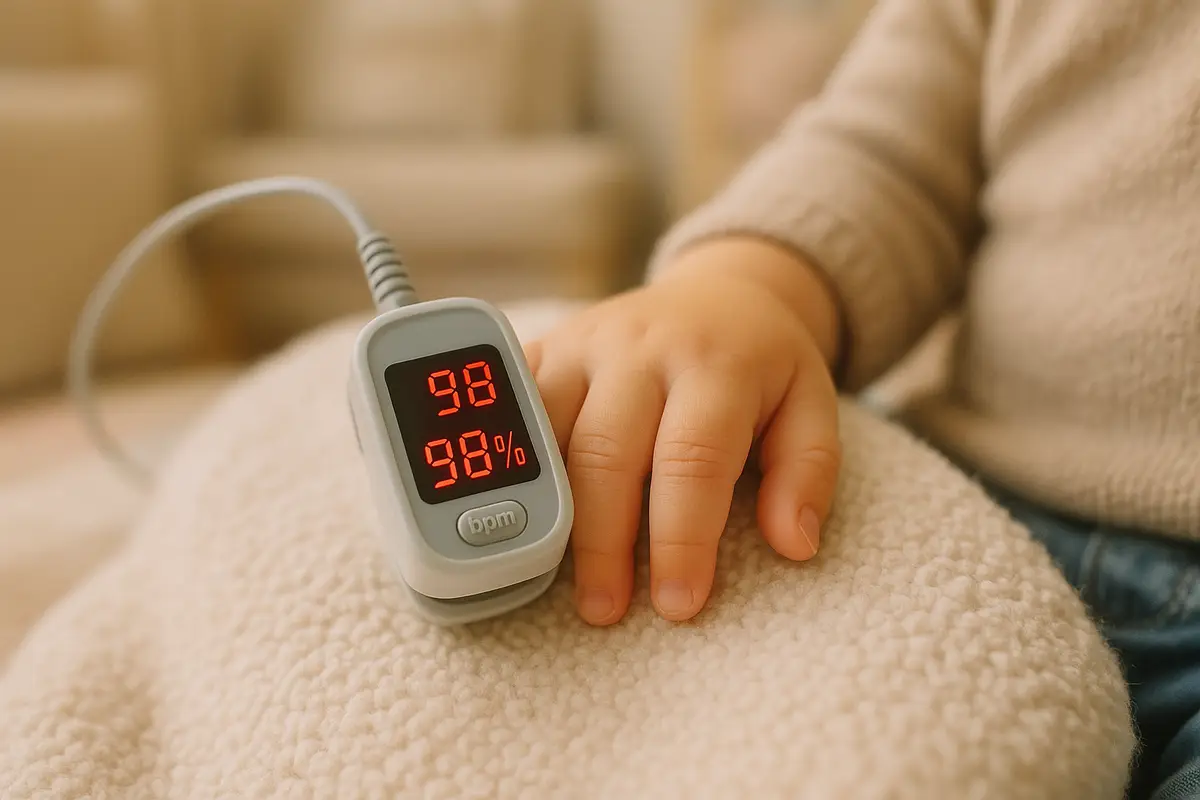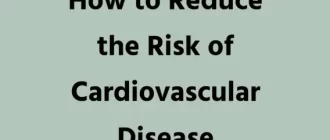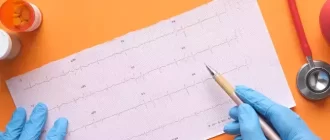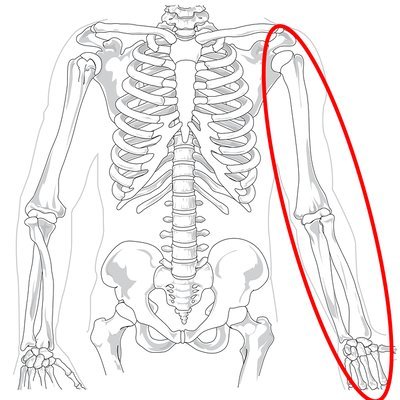If you’re wondering whether your toddler’s heartbeat is too fast, too slow, or just right—you’re not alone. Many parents find themselves questioning what’s normal, especially when little hearts seem to race after a nap or during playtime.
Average Heart Rate by Age (Months)
The chart illustrates how average heart rate (in beats per minute) gradually decreases as infants grow older. This trend reflects normal developmental changes in cardiovascular function over the first two years of life.
The truth is, toddlers have naturally higher heart rates than older kids and adults, and that’s usually a good sign. Their growing bodies and tiny hearts are working overtime to support rapid development. But understanding the normal range can help you stay calm when you spot something unusual—or know when it’s time to check in with your pediatrician.
This guide breaks it all down so you can breathe easy and feel confident in reading your toddler’s vital signs.
What Counts as a Normal Heart Rate for Toddlers?
Generally, a healthy heart rate for toddlers (ages 1 to 3 years) ranges from 80 to 130 beats per minute (bpm) when they’re awake and 65 to 100 bpm during sleep. This is faster than older children and adults—after all, toddlers are basically energizer bunnies with chubby cheeks.
To make it even easier, here’s a breakdown by age group:
| Age | Normal Heart Rate (Awake) | Normal Heart Rate (Asleep) |
|---|---|---|
| 12–18 months | 90–130 bpm | 70–100 bpm |
| 18–24 months | 85–125 bpm | 65–95 bpm |
| 24–36 months | 80–120 bpm | 65–90 bpm |
These numbers are general estimates based on pediatric health data from sources like the American Heart Association and National Institutes of Health (source). Always consider individual variations and consult your pediatrician if unsure.
Why Is a Toddler’s Heart Rate So Fast?
Their tiny bodies and higher metabolic rates require their hearts to beat faster to keep up with growth and energy demands. Also, their smaller heart chambers mean they pump smaller volumes of blood per beat, so the heart compensates with a higher rate.
Think of it like a hummingbird versus a hawk. A hummingbird flaps its wings around 50 times per second, while a hawk might flap just a few times before gliding. Toddlers, like hummingbirds, have small bodies in rapid development—demanding a fast pace to sustain their growth and energy.
According to data from the National Library of Medicine, heart rate in toddlers is expected to be higher because their cardiovascular systems are still developing and adapting to external stimuli (source).
How to Measure Your Toddler’s Heart Rate at Home
You can check your toddler’s pulse using several methods—each with different levels of convenience, accuracy, and cost:
- Wrist (radial pulse): Place two fingers on the inside of the wrist. This method is free and accessible but may be harder to perform on a squirming toddler. Accuracy is moderate (about 6 out of 10) and depends on parent technique.
- Neck (carotid pulse): Gently feel the pulse on either side of the neck. Slightly easier to locate than the wrist pulse and usually stronger. This method is also free and has moderate accuracy (6.5/10), though care must be taken not to press too hard.
- Chest or underarm: Best for younger toddlers. You can place your hand over the chest or use a basic stethoscope (available for $15–$40). A stethoscope provides better clarity, boosting accuracy to around 7.5/10. This is a good low-cost investment for families wanting regular checks.
- Digital devices: Finger pulse oximeters or smart wearables for toddlers offer convenience and data tracking. Many home-use pulse oximeters cost between $20 and $50 and have a reliability rating of 7–8 out of 10 for healthy children. Devices like Owlet Smart Sock ($250+) track both heart rate and oxygen, but may be excessive for casual monitoring.
Count the beats for 30 seconds and multiply by two—or let a device or app handle the math. Consider ease of use, frequency of need, and your comfort with manual methods before deciding what’s best to keep at home.
What Affects a Toddler’s Heart Rate?
Just like us, their heart rate can spike or dip due to several external and internal factors. Here’s how each one works:
- Fever: When a toddler has a fever, the body’s metabolism speeds up to fight off infection. This increased demand for oxygen and energy causes the heart to beat faster—like stepping on the gas to climb a hill. For every degree Fahrenheit above normal, heart rate can increase by about 10 bpm (source).
- Crying or tantrums: Emotional stress triggers the release of adrenaline, a hormone that activates the “fight or flight” response—even if the only danger is a broken cracker. The result? A sharp increase in heart rate. This spike is usually short-lived and resolves when the child calms down.
- Physical activity: Running, climbing, or even vigorous dancing increases oxygen demand in muscles, making the heart beat faster to keep up. This is completely normal and comparable to how adult heart rates rise during workouts. The rate should return to baseline within 5–10 minutes of rest.
- Sleep or rest: During deep sleep, the body’s systems slow down. This includes the heart rate, which naturally dips during naps or nighttime sleep. It’s like switching from drive to park—reduced physical demand means the heart doesn’t have to work as hard.
This chart shows the typical increase in heart rate corresponding to a rise in body temperature. On average, for each 1°F increase in fever, the heart rate climbs by about 10 beats per minute, reflecting the body’s metabolic response to heat.
Even room temperature can play a role. In a hot room, the body may increase heart rate to help cool itself through sweating. In cold environments, the heart rate can rise slightly as the body tries to generate warmth.
Emotional stress, even subtle ones like separation anxiety or unfamiliar surroundings, may elevate heart rate temporarily. These fluctuations are usually mild and should stabilize once the source of stress is removed. As a rule of thumb, temporary changes are okay. Persistent abnormalities? Call your pediatrician.
When to Worry: Signs of an Abnormal Heart Rate
If your toddler’s heart rate is consistently below 60 bpm or above 140 bpm when awake and calm, that could be a red flag (source). Here are key symptoms to watch for—each with a closer look:
- Lethargy: This isn’t just “nap time” tiredness. True lethargy means your toddler is unusually drowsy, unresponsive, or hard to wake—even after rest. If your usually active child suddenly becomes disengaged or uninterested in play or food for several hours, it’s time to take action. Monitor this symptom for a few hours; if there’s no improvement or it worsens, seek immediate medical help.
- Poor appetite: Skipping a snack is normal, but ongoing refusal to eat meals, drink fluids, or breastfeed can signal something deeper. If poor appetite is paired with weight loss, dry mouth, or fewer wet diapers, it could indicate dehydration or a metabolic issue—especially when linked to an irregular heart rate. Track intake for a full day; consult your pediatrician if the issue persists or worsens.
- Pale or bluish skin: A pale appearance, especially around the lips, fingertips, or under the eyes, can suggest reduced blood flow or oxygenation. Bluish skin (cyanosis) is more urgent and often linked to heart or lung conditions. This symptom may fluctuate with temperature or activity but should never be ignored if persistent. Immediate evaluation is warranted if cyanosis appears.
- Difficulty breathing: Labored, rapid, or irregular breathing patterns, wheezing, or grunting can all be signs of cardiovascular or respiratory strain. If your toddler’s nostrils flare, ribs show with each breath (retractions), or if breathing is accompanied by unusual sounds, act quickly. This is a critical symptom that requires urgent medical attention.
Duration of Tachyarrhythmia Episodes
This chart displays the distribution of tachyarrhythmia episodes in infants. While brief episodes are relatively more common, prolonged events exceeding 30 or 45 minutes are significantly rarer, emphasizing the importance of early detection and monitoring.
According to a study published in Pediatrics, sustained tachycardia (heart rate >140 bpm) in toddlers has been linked to underlying infections or cardiac arrhythmias (source).
Diagnostic Tools Pediatricians Use
When heart rate irregularities are suspected, doctors may use:
| Diagnostic Tool | Description | Accuracy (1-10) | Avg. Cost (USD) |
|---|---|---|---|
| Pulse oximeter | Measures pulse and oxygen saturation via fingertip | 7 | $20–$50 (home use) |
| Electrocardiogram (ECG) | Graphs electrical activity of the heart | 9 | $200–$300 |
| Holter monitor | Worn for 24–48 hours to track ongoing rhythms | 9 | $300–$500 |
| Echocardiogram | Ultrasound of the heart’s structure and function | 10 | $1,000–$2,000 |
Real-Life Case: Fast Heart, Frantic Parents
A 2-year-old boy in Austin, TX was brought to the ER after his parents noticed his heart “pounding” even while watching cartoons. His resting heart rate? 150 bpm. After an ECG and a quick blood test, the doctors discovered he had a mild viral infection—nothing serious, just toddler drama. He recovered fully in days.
Expert Recommendations
Reyus Mammadli, medical consultant, recommends regular checkups and being observant rather than obsessive: “A toddler’s heart rate is naturally dynamic. Parents should learn the normal range but avoid over-monitoring unless there’s a clinical concern.”
Finger Pulse Oximeter
Measures pulse & oxygen saturation. Portable and easy to use. Cost: $20–$50.
Stethoscope + Manual Cuff
Classic method, more accurate with training. Affordable ($15–$40).
Smart Wearables (e.g., Owlet Sock)
Tracks heart rate and oxygen overnight. Great for peace of mind. Pricey ($250+).
Mobile Monitoring Apps
Pair with smart devices to store and review data. User-friendly interface.
Editorial Advice
Heart rate monitoring can be a smart way to stay tuned into your child’s health, but it’s not a crystal ball. If your little one is running around, giggling, and eating well, chances are their heart is doing just fine. For parents navigating toddlerhood, knowing the heart rate range is like knowing how much screen time is okay—handy, but context is king.
Stay cool, trust your instincts, and when in doubt, check it out with your pediatrician. It’s better to be the over-cautious parent than the one Googling at 3 a.m.
About the Author
Reyus Mammadli is the author of this health blog since 2008. With a background in medical and biotechnical devices, he has over 15 years of experience working with medical literature and expert guidelines from WHO, CDC, Mayo Clinic, and others. His goal is to present clear, accurate health information for everyday readers — not as a substitute for medical advice.







